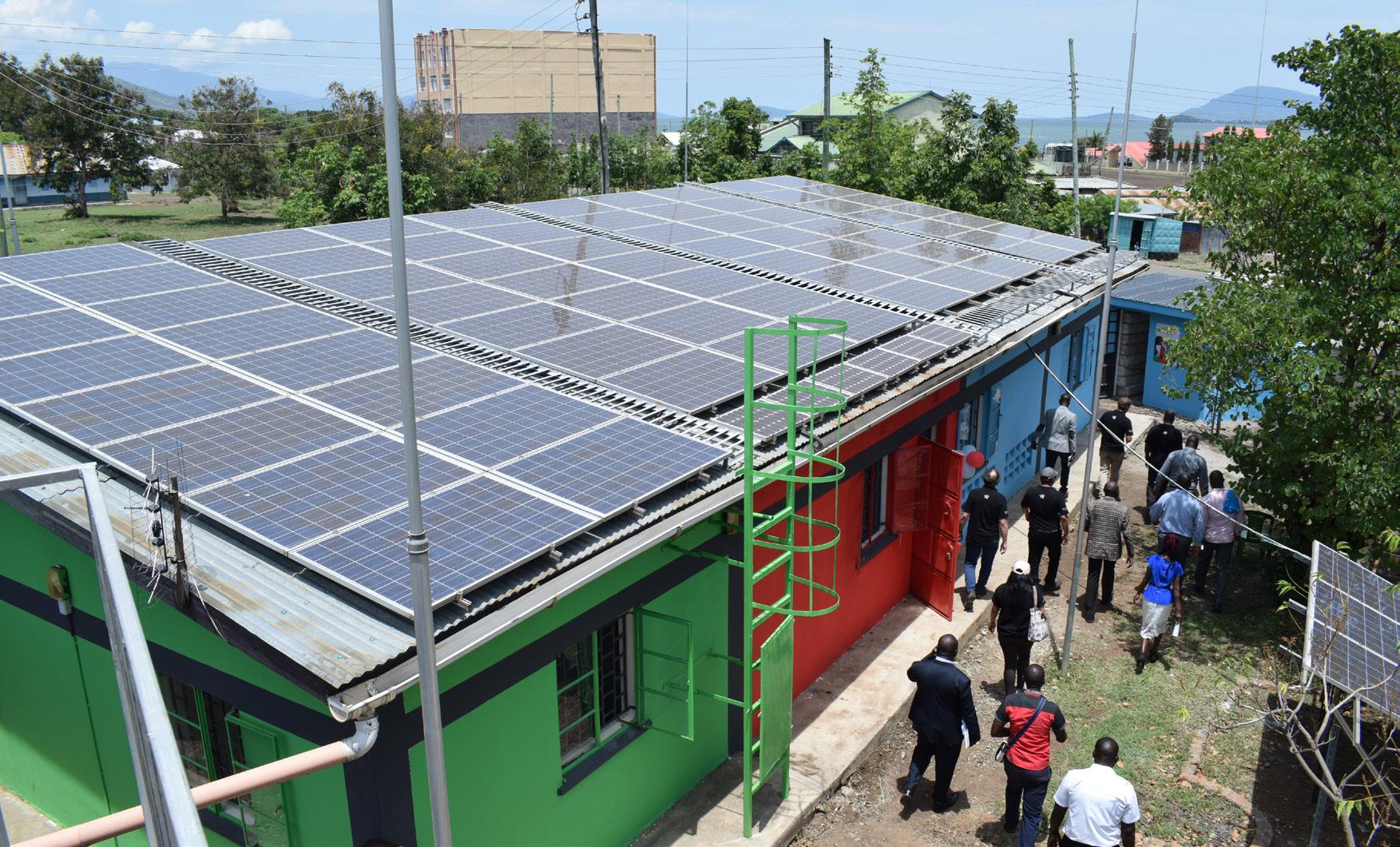
2 minute read
Introducing WeTu Hubs
Siemens Stiftung and its not-for-profit enterprise, WE!Hub Victoria Ltd (WeTu), have established an incubation program for e-mobility solutions in rural Western Kenya along the shores of Lake Victoria. To support e-mobility start-ups in testing their technologies, business models and applying their solutions, WeTu owns and operates 7 solar powered hubs. The WeTu Hubs are also solar driven charging stations with a capacity of a total of 150kWp providing electricity for a range of services such as electric vehicles. With WeMobility, WeTu offers a range of e-mobility solutions such as e-cargo bikes and e-boda bodas in their own operations but also partner with other local companies and organisations to provide solar energy for e-mobility appliances such as e-outboard boat engines. Boat owners spend up to $15-20 per day on petrol and oil for their diesel engines and lamps. By exchanging diesel engines for e-outboard engines, boat owners can contribute to a reduction in CO ₂ emission while saving costs for expensive diesel and enabling them to re-invest. The business vertical WePower provides renewable energy for e-mobility solutions and leasing services for solar lanterns for small-scale fishing. The product offers a price competitive alternative, which is easier to handle and environmentally sustainable. Competitive solutions on the market are mostly lead-acid batteries that need to be completed by cables and bulbs to serve as lanterns. Besides the regular loss of components, the lead-acid batteries drop their lightning capacity of max. 8h quickly to much shorter periods and end its lifecycle after approx. 2 to 3 months. In comparison, the WePower lithium-ion lantern’s lightning capacity lasts up to 12h and has a life-cycle of approx. 2 years. The results are higher fishing yields per night, easier handling and a more sustainable product that is safely reintroduced into a circular economy by take-back systems at the WeTu Hubs. With
the third business vertical of WeWater, WeTu provides safe and clean drinking water 24/7. Expansion of water services are planned by further Water ATMs at central community sites and delivery services with e-mobility solutions, such as the e-cargo bike. WeTu’s e-mobility services meet the mobility needs of rural communities and small-scale businesses in a sustainable, clean and environmentally friendly way. By offering collaborative “innovative work spaces” for e-mobility solutions at WeTu Hubs and an energy-autonomous charging infrastructure, this business model promotes rural development and the creation of new jobs. Applying a usercentric approach, hub partners are testing their products in the rural market and are able to meet customer demands focusing on a variety of occupational groups such as farmers, fishermen, as well as female market traders. WeTu’s sharing business model promises to deliver cost-reductions in rural transport services and will improve local rural logistics and thus, impact the availability and affordability of products and services.
Advertisement




